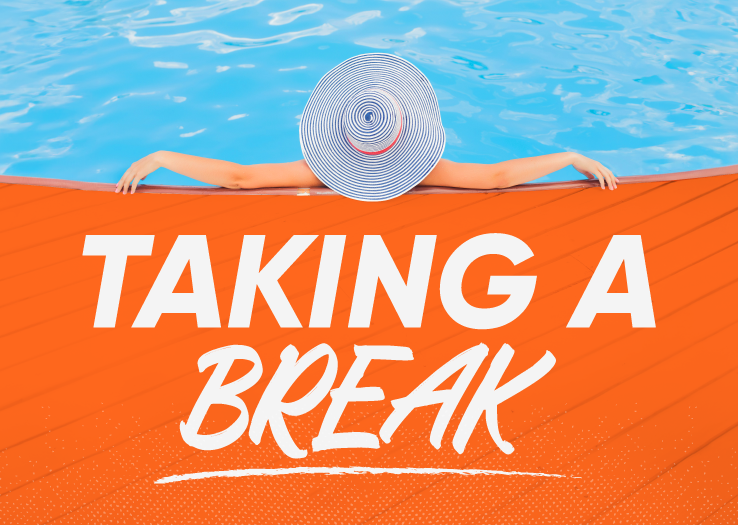Blog

Taking A Break
After 11 months of hard work, early mornings, late nights, and busy weekends, it’s finally time to take a well-earned summer break. For most swimmers, parents, and coaches this is greatly anticipated, and summer holiday plans have been booked months in advance. Whilst time off from sport is appropriate across all squads, age groups, and levels, the length of time off depends on the squad and athlete's needs. Typically, a maximum of 4 weeks off sport is given to older athletes or athletes with an older training age, with a minimum of 2 weeks for younger athletes. It is crucial that athletes allow themselves time to switch off from sport and permit themselves time to pursue other hobbies, and social activities and have some well-earned downtime in the off-season of swimming. There are numerous reasons why this is essential. Let’s explore them below.
Physical Recovery and Regeneration
The demands of competitive sports impose significant stress on the body and over time these stressors can lead to accumulative fatigue. Allowing the body to reset physically helps reduce the risk of injury, helps restore muscle imbalances, and allows athletes to prioritise all aspects of recovery.
It is in extended breaks from the sport that young athletes typically do most of their growing. Whilst the body has a chance to rest more than during the school year and athletic season, growth spurts tend to happen for those reaching puberty, and often kids return to sport taller and more robust than the previous month. This is great as growing can often be fatiguing to the body. Having time to do this without training allows your body to prioritise development.
Mental Rejuvenation and Psychological Well-being
In addition to its physical benefits, the off-season break plays a crucial role in promoting mental rejuvenation and psychological well-being among athletes. The relentless pursuit of sporting excellence can take a toll on an athlete’s mental health, leading to burnout and reduced motivation. Stepping away from the poolside for a few weeks can help alleviate the pressures of sport and can help swimmers recharge their mental batteries and rediscover their passion for the sport.
During the break, athletes have the freedom to choose other sports or activities in which they have perhaps sidelined to favour swimming performance. The break also allows athletes to spend more time with friends, family, and loved ones, travel, and explore recreational activities they perhaps had little time for in season. The break from the demands of training helps create a sense of balance, perspective, and overall happiness.
Typically, a break will happen after a peak performance competition. The break allows the swimmers to reflect on their season, set new goals and reset their targets within swimming ahead of the upcoming season.
Preventing Overtraining Syndrome
Overtraining syndrome is a prevalent concern in older athletes across any sport, characterised by a state of chronic fatigue, decreased performance and an increased susceptibility to injury and illness. It occurs when athletes push themselves beyond their physical capabilities and mental limits without adequate rest and recovery. Whilst Hamilton Aquatics manage this risk with mindful programming across the season and training cycles, an off-season break serves as a preventative measure against overtraining by imposing a mandatory rest period for athletes.
By taking a break at the end of the season, swimmers can reduce the risk of overtraining-related injuries. This proactive approach to managing training loads helps maintain athletes’ long-term health and how long they will participate in sports.
Staying Active Without Organised Sport
While the off-season break is characterised by not participating in organised training, swimmers must remain active in alternative ways. Engaging in low-impact activities such as walking, cycling, yoga etc. helps keep the cardiovascular system healthy and a level of mobility in joints that will aid in the return to training. Participating in new low level exercise activities or team-sport games with friends and family can help address muscle imbalances and act as cross-training in a fun environment. Embracing new activities helps maintain a level of fitness without the activity becoming mentally fatiguing.
The off-season break at the end of the swimming year is a vital part of an athlete’s training regime. It offers a valuable opportunity to rest, recover, and mentally reset ahead of the next season. By taking a well-earned break whilst remaining active in different ways, swimmers are optimising their long-term health and rejuvenating their passion for sport. As the saying goes, a restful break is not a sign of weakness but a strategic investment in future success.
Enjoy your break!

